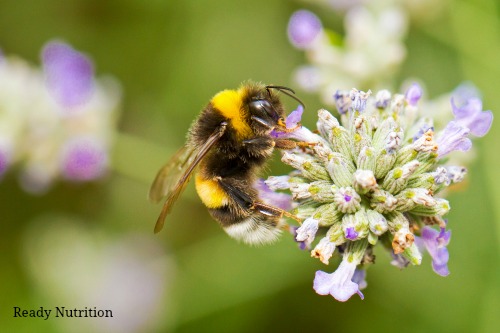 Have you ever asked yourself what a garden really is? That may sound like a dumb question, but I bring it up because the textbook definition of a garden doesn’t really do the word any justice. A dictionary will just tell you that a garden is a space where plants are grown, even though it’s so much more than that.
Have you ever asked yourself what a garden really is? That may sound like a dumb question, but I bring it up because the textbook definition of a garden doesn’t really do the word any justice. A dictionary will just tell you that a garden is a space where plants are grown, even though it’s so much more than that.
In reality, a garden is a place where humans have learned to tame the forces of nature for their benefit. It’s where we use natural processes to grow the things we need, and growing your own food is basically like hijacking mother nature. That sounds way cooler, doesn’t it?
It’s also a much more accurate description of a garden. Humans don’t really grow food, not like we build houses or pave streets. Our work doesn’t involve constructing a plant, it involves creating the best conditions for that plant to grow on its own. It’s all about fostering natural processes to produce something that we need.
One of the ways we can do that is by attracting the right kind of bugs to our garden. That statement might also sound kind of dumb, at least to rookie gardener anyway. Most of us were raised on the idea that bugs are a menace, and we must spray our gardens with pesticides to keep them away, but it doesn’t have to be that way. There are plenty of species that are beneficial to our gardens. They can pollinate your plants, fight pests, and in some cases, they can help fertilize your soil. If these are the kinds of benefits you want your garden to have, here’s how you can attract these critters.
Ladybugs
Some of the worst pests you can have in your garden are the ones you can barely see. Fortunately, ladybugs have a big appetite for many of them, including aphids, mites, and mealy bugs. They are attracted to certain plants that produce pollen, like buckwheat, dandelion, mustard, coriander, cilantro, dill, and so many others.
Spiders
I know you probably don’t want spiders, but your garden sure does. These guys are one of the most prolific bug killers in the animal kingdom, and they’re a great way to keep your garden spotless. Fortunately, you don’t really need to attract them per say, since they are so abundant all over the world. They’ve probably already found their way to your garden at some point.
The real trick is getting them to stay. For that, you need to give them a home. A nice cool little nook that they can cuddle up in. One of the best things you can do is lay down some mulch between the spaces of your plants, like grass clippings or dried leaves. This will shelter them from the elements, retain moisture for them to drink, and keep them close to your plants.
Bees
Bees are excellent pollinators, and much like spiders, you need to provide the right conditions for them to build their home. For ground dwelling bees, one of the most important attributes they are looking for, is privacy, especially when they first start a colony. They want to settle in a space that won’t be disturbed. You can give them a bare patch of loose soil, topped off by some debris like leaves and rotting wood. The spot also needs sunlight but not too much. An ideal spot would have sun in the morning, but would have some shade in the late afternoon when it gets really hot. They also seem to prefer sloped locations that face south.
Wood dwelling bees like to make their homes in trees, and one of the easiest ways you can duplicate that is by drilling holes in a fence post or a rotting stump. In both cases, the bees need a source of water, and an ideal source would include a really shallow puddle of some kind, with perhaps a few pebbles that they can land on and drink from. They of course, also need plenty of flowers to pollinate, of which there are many species that they prefer alongside many of the foods you are probably growing.
Earthworms
Worms not only aerate the soil, but they also provide an excellent fertilizer in the form of the castings they behind after consuming organic matter. To attract them, all you really need to do is provide a food source, such as leaves, manure, kitchen scraps, and rotting logs. They also seem to love cornmeal. This is probably the easiest bug to attract, and there’s a good chance that your garden already has them.
Praying mantis
Despite their creepy alien appearance, you’ll definitely want at least one of these guys in your garden. Simply put, they put spiders to shame for their ability to prey on other bugs. They’re not picky either. They’ll eat just about anything, including each other from time to time. In terms of natural pest control, the praying mantis is a nuclear option, since they will also gobble up plenty of beneficial insects into their bottomless pit of a stomach.
They seem to be attracted to roses and raspberry plants, as well as other shrubs that might provide shelter. They also seem to enjoy marigolds, cosmos, and dill plants. Given their size, they’ll need plenty of water so make sure there is some kind of shallow puddle or water dish near these plants. Though they prefer drinking the dew off of plants, so on a particularly dry day you can spray a little water on whatever they’re living on.
This article was originally published at Ready Nutrition™ on August 26th, 2015






